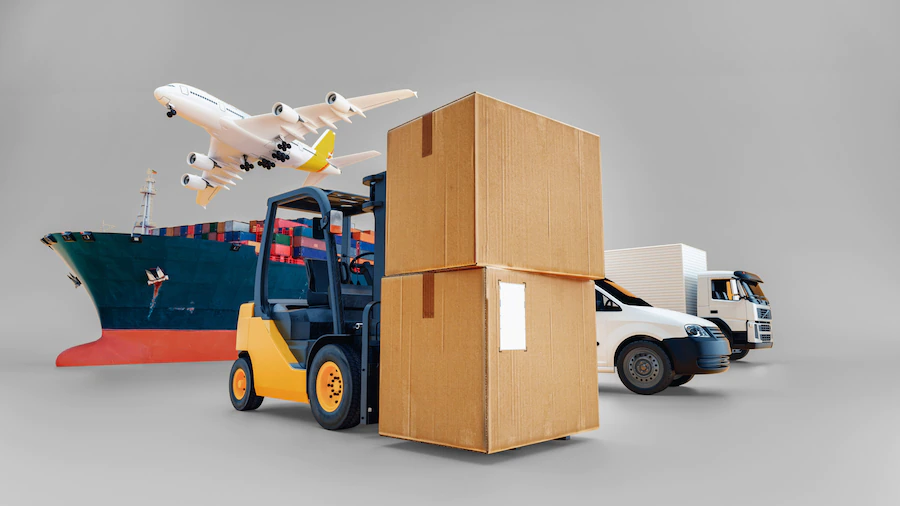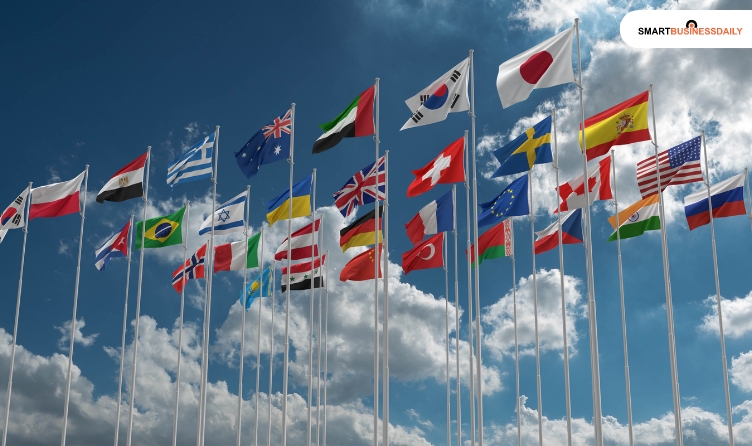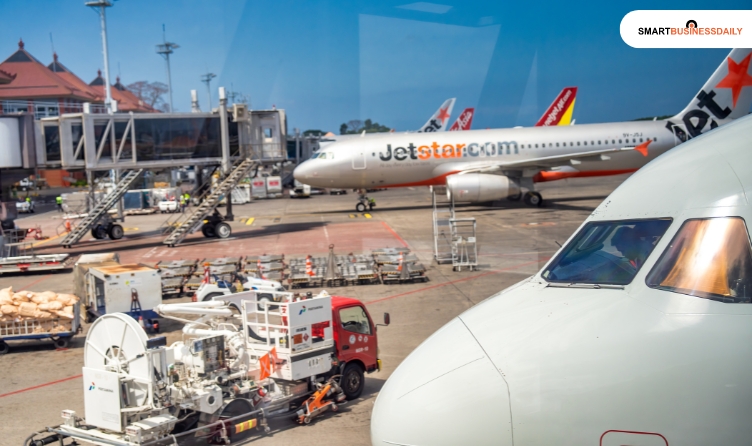Institutions of Freight Forwarding: Who Makes the Decisions?
7 Mins Read
Published on: 23 April 2022
Last Updated on: 11 September 2024

- International Institutions for Freight Forwarding
- 1. International Chamber of Commerce (ICC)
- 2. World Customs Organization (WCO)
- 3. World Trade Organization (WTO)
- 4. International Air Transport Association (IATA)
- 5. International Labor Organization (ILO)
- 6. International Monetary Fund (IMF)
- 7. International Transport Workers’ Federation
- 8. World Bank Group
- 9. International Maritime Organization (IMO)
- 10. Federal Maritime Commission
- 11. UNCTAD
- The Purpose of these Governing Institutions
- 1. Maintaining International Safety, Security, and the Efficiency of Shipping
- 2. Maintaining International Standards for Freight Forwarding
- 3. Developing International Shipping Regulations
- 4. Improving International Shipping and Logistics Processes
- 5. Assisting Countries in the Development of their International Trade
- 6. Coordinating International Organizations and Agencies
- The Benefits of these Governing Institutions
- 1. Improved International Shipping and Freight Forwarding
- 2. Improved International Shipping and Freight Forwarding Regulations
- 3. Improved International Shipping and Freight Forwarding Processes
- 4. Reduced Risk of Shipping Fraud
- 5. Reduced Risk of Shipping Delays
- 6. Increased Transparency and Predictability of International Trade
- 7. Reduced Costs of International Trade
- 8. Many Other Benefits
- The Challenges of these Governing Institutions
- 1. Conflicting Political Agendas
- 2. Conflicting or Confusing Objectives
- 3. Limited Resources
- 4. Lack of Effective Coordination
- 5. Different Governing Bodies
- The Future of these Governing Institutions
- Final Thoughts
Freight forwarding is a complicated and confusing process for customers, and for every customer to go through this process alone.
However, by using the services of freight forwarders, customers can solve many of their issues and save time, money, and potential profit from freight forwarding services.
There are no international governing bodies that regulate freight forwarding. However, freight forwarding institutions are governed by laws, regulations, and market forces.
Moreover, these institutions help ensure the smooth operation of freight forwarding businesses and protect the interests of freight forwarders and their customers.
Today, we’ll list the international organizations for freight forwarding.
International Institutions for Freight Forwarding

1. International Chamber of Commerce (ICC)
The ICC was founded in 1919 in Paris as an international institution for global trade. On 1 September 1999, the ICC became the International Chamber of Commerce. However, the name change wanted to reflect the organization’s role more accurately as an international business institution rather than an international trade institution.
2. World Customs Organization (WCO)

The World Customs Organization (WCO) is a specialized agency of the United Nations based in Brussels. The WCO aims to improve coordination between customs administrations in its member countries, optimize the use of customs revenues, and prevent the evasion of customs duties and other international trade regulations.
3. World Trade Organization (WTO)
The WTO is a specialized agency of the United Nations. Its primary function is to help formulate the rules of trade between nations. It aims to help countries trade more fairly and efficiently to benefit everyone. It also acts as a knowledge bank for developing countries.
It provides technical assistance, training, capacity building, and support for developing countries in building up.
4. International Air Transport Association (IATA)

IATA is the trade association for the airline industry. It represents the interests of all air transport stakeholders, including airlines, manufacturers, airports, catering companies, and tourism industries. Its operations are supported by 285 member airlines, accounting for 84% of global air traffic.
5. International Labor Organization (ILO)
The ILO is a United Nations specialized agency with 187 member countries, accounting for one-fourth of all UN members. The International Labor Organization’s global standards establish internationally recognized workplace norms in various areas, including minimum age, working hours, wages, social security, and sick and maternity leave.
6. International Monetary Fund (IMF)

The IMF is an international and Washington-based institution developed as part of the Bretton Woods agreements. They hold a unique position in the international monetary system. It monitors the global monetary and financial system and assesses the implications of its developments for economic and social well-being.
7. International Transport Workers’ Federation
The ITF is an international union federation representing transport workers. It aims to make safe, decent, and competitive employment the norm and promote social justice and human rights.
8. World Bank Group

The World Bank Group (WGB) is a group of five international organizations that make leveraged loans to developing countries, provide policy advice and technical assistance to the poorest and vulnerable countries, and support the private sector in developing countries.
9. International Maritime Organization (IMO)
The IMO is an agency of the United Nations responsible for preventing pollution from ships and the safety and security of shipping. Created in 1959, the IMO replaced UNESCO’s Intergovernmental Oceanographic Commission.
10. Federal Maritime Commission

The Federal Maritime Commission is a U.S. federal agency that regulates foreign trade, maintains rates for ocean carriers, and resolves disputes between ocean carriers and shippers. Before 2006, the Federal Maritime Commission was called the U.S. Maritime Administration (MARAD).
11. UNCTAD
UNCTAD is the United Nations’ premier cross-sectoral forum for promoting dialogue and cooperation on trade and development issues. As a UN body, it serves as a bridge between the global policy-making body, the United Nations General Assembly, and most developing countries.
The Purpose of these Governing Institutions

International institutions play an essential role in the global freight forwarding industry. They play a crucial role in the following:
1. Maintaining International Safety, Security, and the Efficiency of Shipping
The IMO, IMCO, and WCO are international maritime authorities and are vital in maintaining global safety, security, and shipping efficiency. They also help develop international naval policy.
2. Maintaining International Standards for Freight Forwarding
The ICC, ICC Uniform Customs and Practice for Documentary Credits, WCO, and WCO Electronic Commerce Standards help maintain international freight forwarding standards.
3. Developing International Shipping Regulations
The ICC, ICC Uniform Customs and Practice for Documentary Credits, WTO, and UNCTAD help develop international shipping regulations.
4. Improving International Shipping and Logistics Processes
The International Chamber of Commerce (ICC), WCO, and WCO Electronic Commerce Standards help to improve international shipping and logistics processes. They also help to develop modern logistics, such as the use of electronic documents.
5. Assisting Countries in the Development of their International Trade
The UN, ILO, and WTO help countries develop their international trade.
6. Coordinating International Organizations and Agencies
The WCO helps to coordinate international organizations and agencies.
The Benefits of these Governing Institutions

1. Improved International Shipping and Freight Forwarding
We can see that the IMO, IMCO, and ICC help to maintain international safety and security. This leads to a more efficient, safe, and rapid shipping and freight forwarding operation.
2. Improved International Shipping and Freight Forwarding Regulations
The ICC, WCO, and WTO help develop international shipping and freight forwarding regulations. These regulations help to give transparency and predictability to international trade. They also help to lower transaction costs.
3. Improved International Shipping and Freight Forwarding Processes
The ICC, ICC Uniform Customs and Practice for Documentary Credits, and WCO Electronic Commerce Standards help develop a more efficient and rapid shipping and freight forwarding operation.
4. Reduced Risk of Shipping Fraud
We can see that the ICC and WCO help reduce the risk of shipping fraud. This ensures that freight forwarders do not suffer any financial losses.
5. Reduced Risk of Shipping Delays
We can see that the UN and WTO help to reduce shipping delays. This will help freight forwarders plan and schedule cargo transportation more efficiently and effectively.
6. Increased Transparency and Predictability of International Trade
The ICC, ICC Uniform Customs and Practice for Documentary Credits, WCO, and WTO help increase the transparency and predictability of international trade. Meanwhile, they also help to lower the transaction costs of international trade.
7. Reduced Costs of International Trade
The ICC, ICC Uniform Customs and Practice for Documentary Credits, WCO, WCO Electronic Commerce Standards, UNCTAD, and WTO help reduce the costs of international trade.
8. Many Other Benefits
International organizations can have many other benefits for freight forwarders.
We can see from the analysis of these international organizations that their primary purpose is to help maintain global safety, security, and shipping efficiency.
The primary benefit for freight forwarders is more transparency and predictability in international shipping, transportation, and logistics processes. This will help to reduce shipping delays and shipping fraud. It will also allow freight forwarders to plan, schedule, and price their international shipments more effectively.
The Challenges of these Governing Institutions

International organizations must face several challenges. These challenges include the following:
1. Conflicting Political Agendas
The main challenge of international organizations is that their objectives are not the same. Developing a standard policy or moving in the same direction as other global governing institutions is complex. The ICC and WCO tend to focus more on the private sector. The UN and WTO tend to focus more on the global good.
2. Conflicting or Confusing Objectives
The objectives of different international organizations can be conflicting or confusing. Conflicting objectives can make it difficult for them to work closely with each other. This can also make it difficult for them to achieve the same purposes.
3. Limited Resources
Another challenge that international organizations face is limited access to financial and human resources. This is especially true for international organizations that are based in developing countries.
4. Lack of Effective Coordination
Many large international organizations have many different departments, sections, and divisions. This can lead to ineffective coordination and ineffective implementation of their policies.
5. Different Governing Bodies
The different international organizations have separate governing bodies. The governing bodies of the ICC suffer from a lack of absolute power. They lack the actual ability to enforce policies or to hold parties accountable.
The Future of these Governing Institutions

The future of international organizations is difficult to evaluate. Most international organizations are based in developing countries.
It is difficult for them to fulfill their objectives due to the lack of financial and human resources. However, they need help to improve their working relationships with the various international governing bodies due to the conflicting political agendas.
However, we can see that many countries are now developing their national freight forwarding industry. For example, China and India are developing their national freight forwarding industry. However, this is due to the high growth rate of international trade. Subsequently, there is also an increased awareness of global trade, shipping, and logistics.
Freight forwarders like Zggship are the world’s driving China freight forwarders, committed to international freight transport and logistics between China and other countries with the strong cooperation of marine shipping, air transport, road transport, rail transport, international express, and multi-modal transport.
Moreover, 3PL freight forwarders such as FBABEE commit to alleviating your logistics burden by streamlining your warehousing and transport.
Subsequently, a controlled customs process helps to handle the entire process of 3PL Freight Forwarding, dedicated to serving and delighting customers.
The future of the ICC, ICC Uniform Customs and Practice for Documentary Credits, UN and WTO are auspicious. These governing bodies are based in developed countries.
They can fulfill their objectives due to financial and human resources availability.
Subsequently, they can also improve their working relationships with the various international governing bodies due to their common purpose of improving the global shipping, transportation, and logistics industry.
Final Thoughts
International freight forwarders are exposed to many different governing bodies. These international governing bodies address many other issues.
These bodies will continue to be essential in the global freight forwarding industry. International freight forwarders should have a basic understanding of the role of these international governing bodies.
Furthermore, international freight forwarders should develop a strong understanding of the role of their national government. As a result, they should also understand the role of their federal government in the global shipping and logistics industry.
Finally, international freight forwarders should comply with the latest global standard document templates. Also, they should follow the latest international shipping and freight forwarding regulations.
Read Also:



















Comments Are Closed For This Article